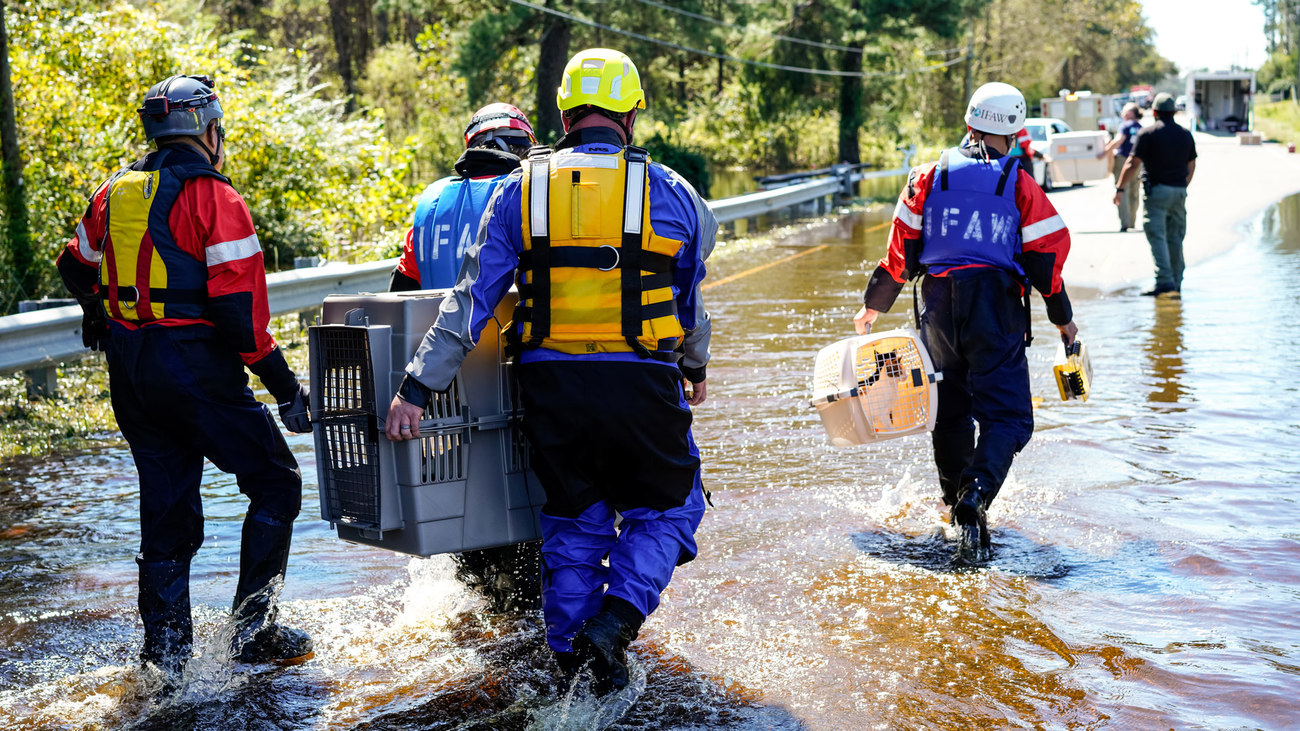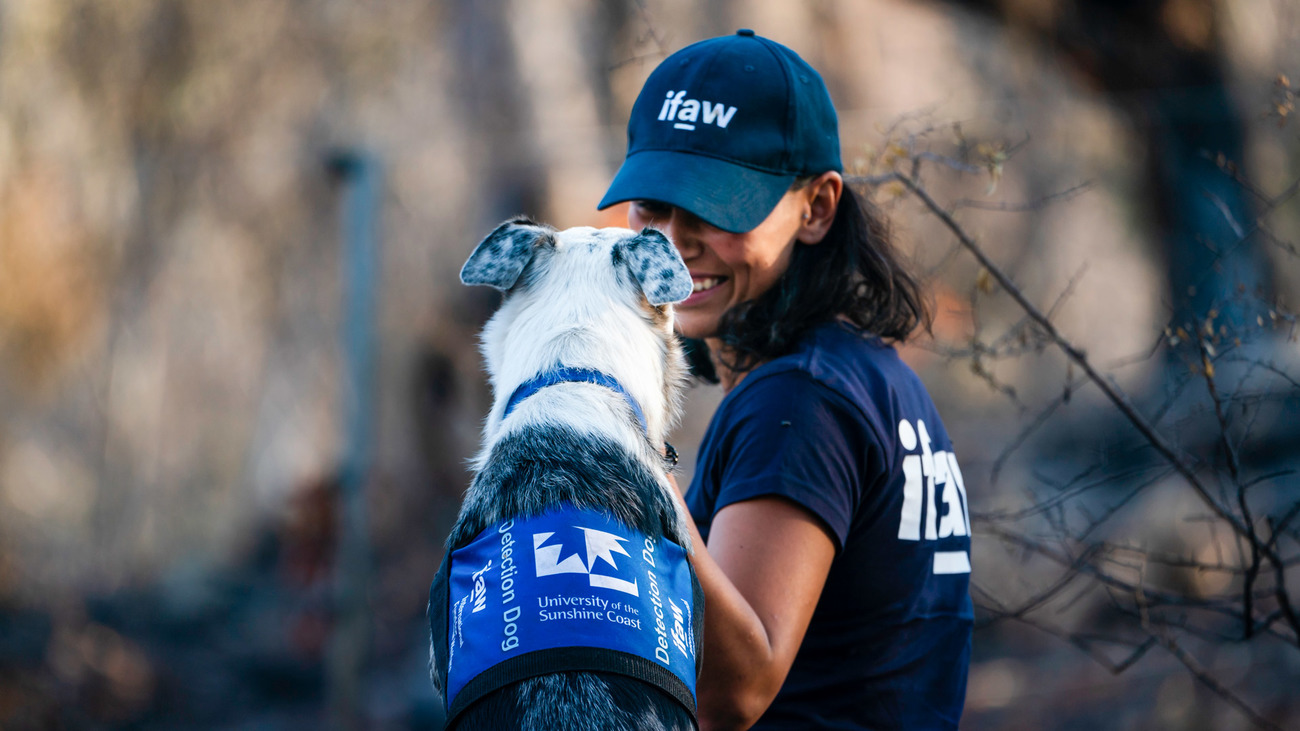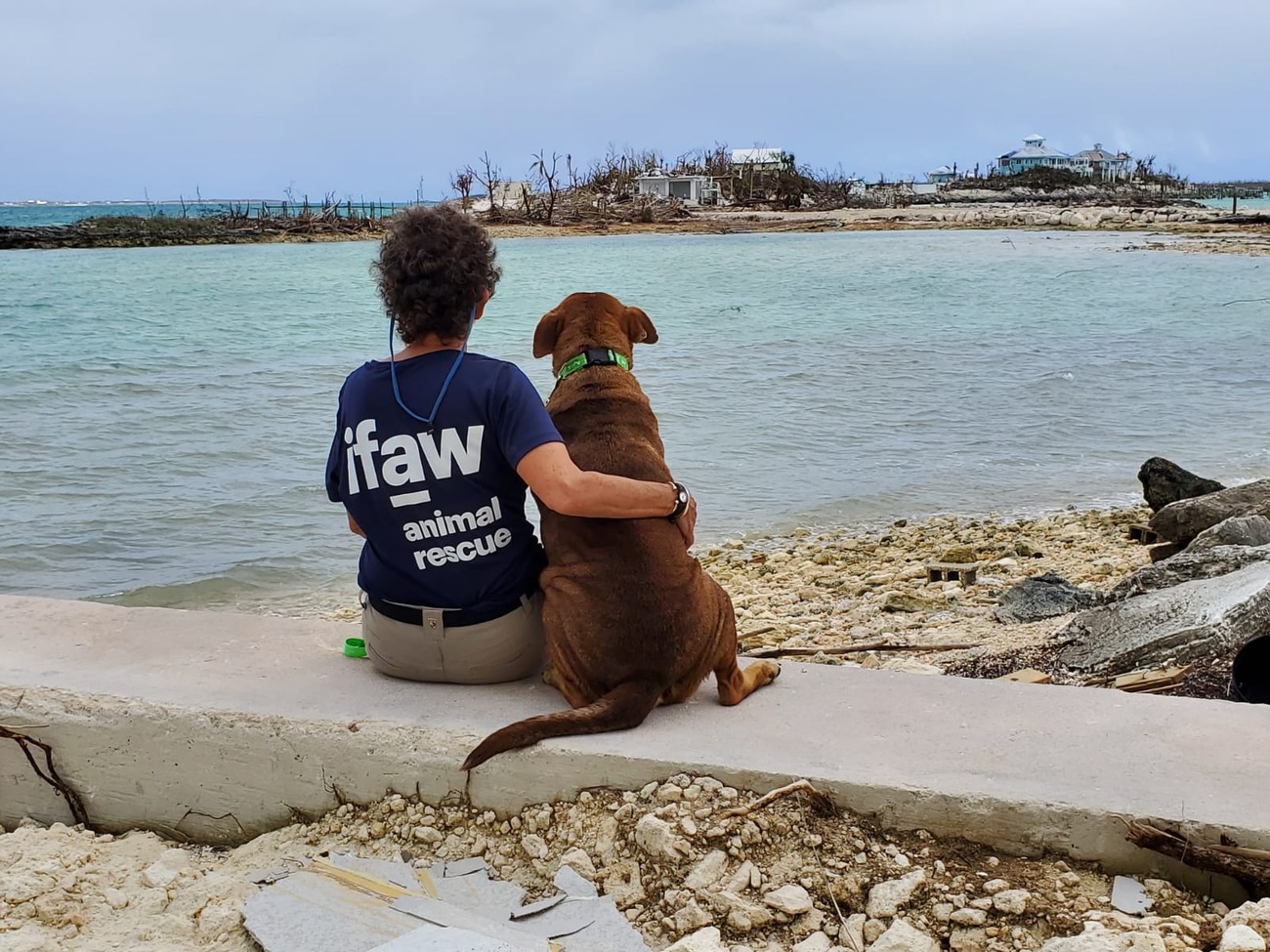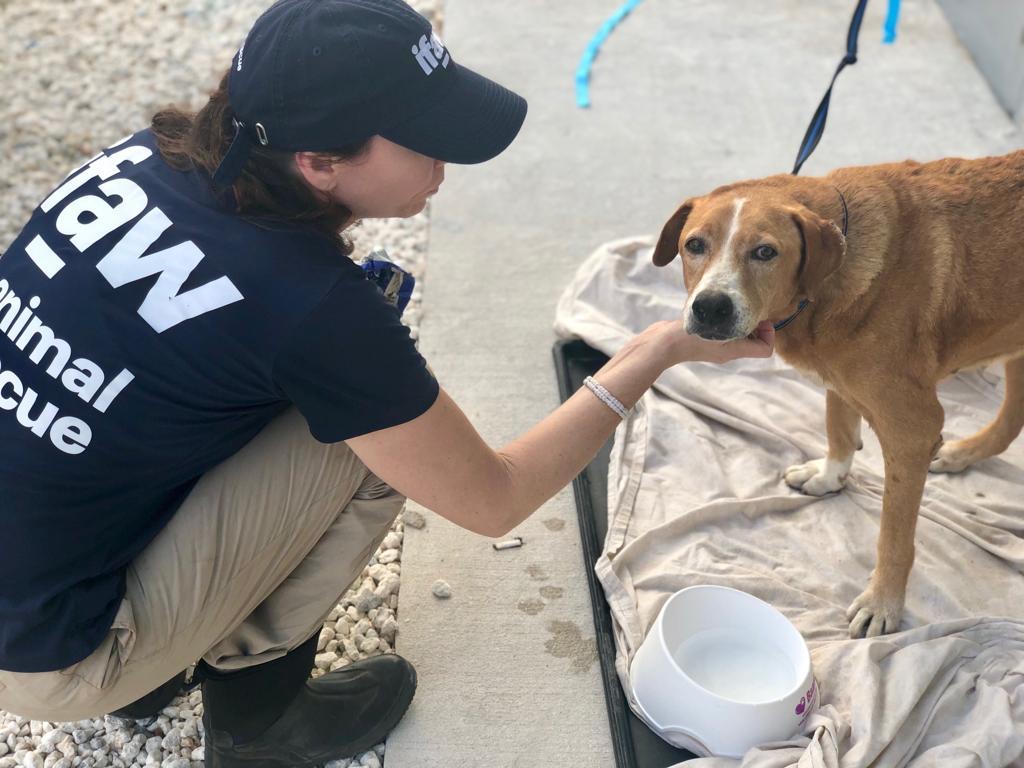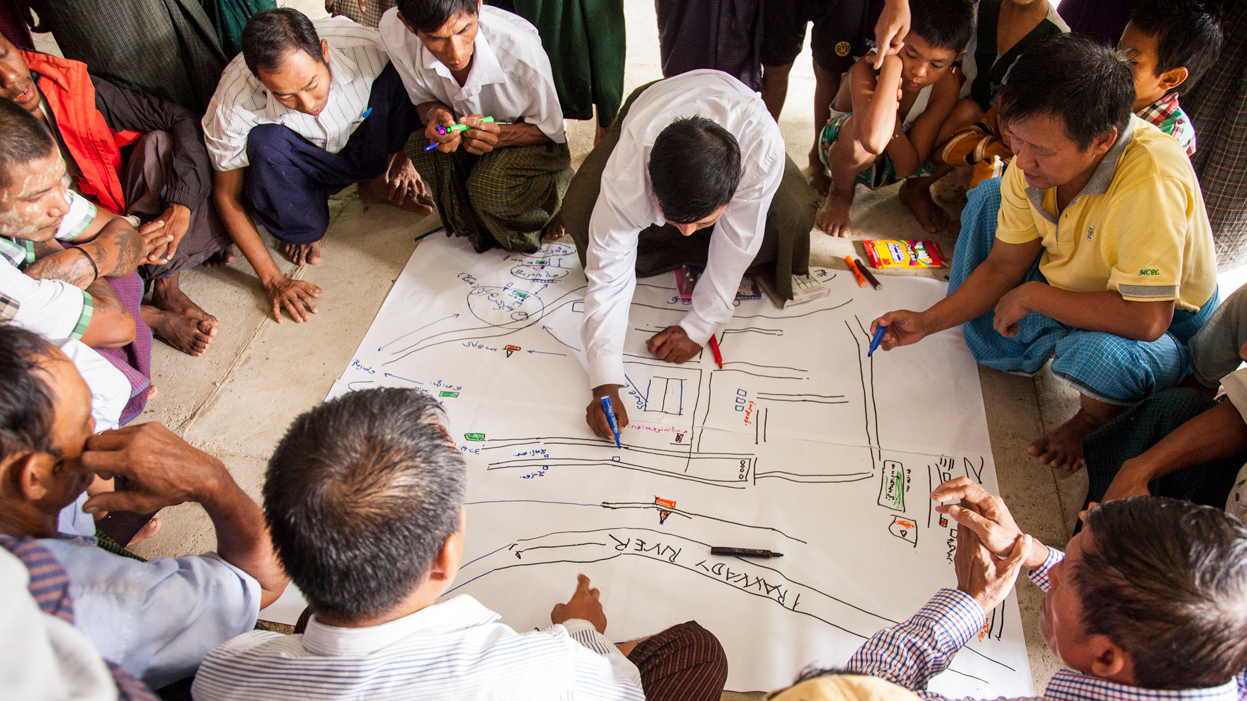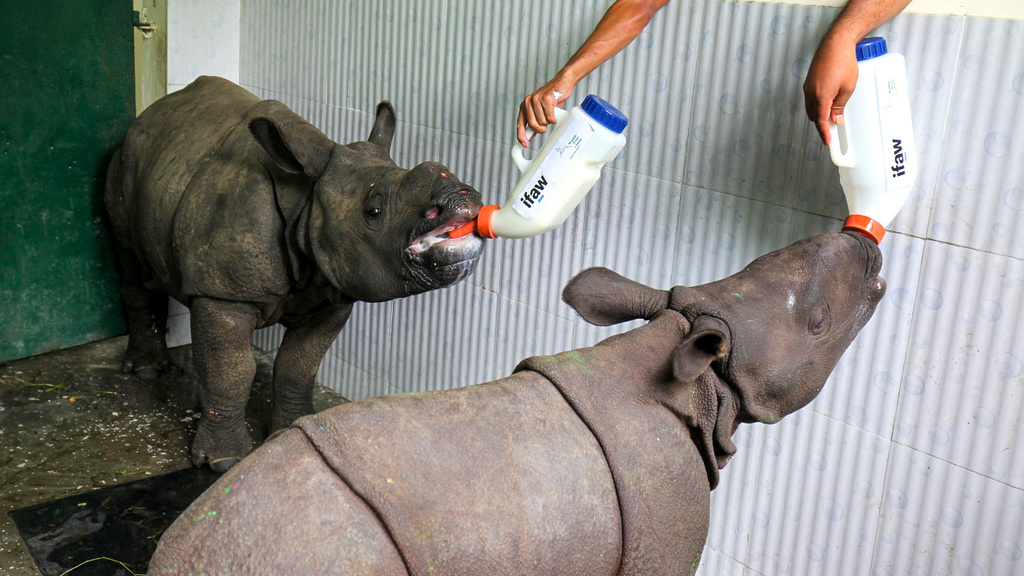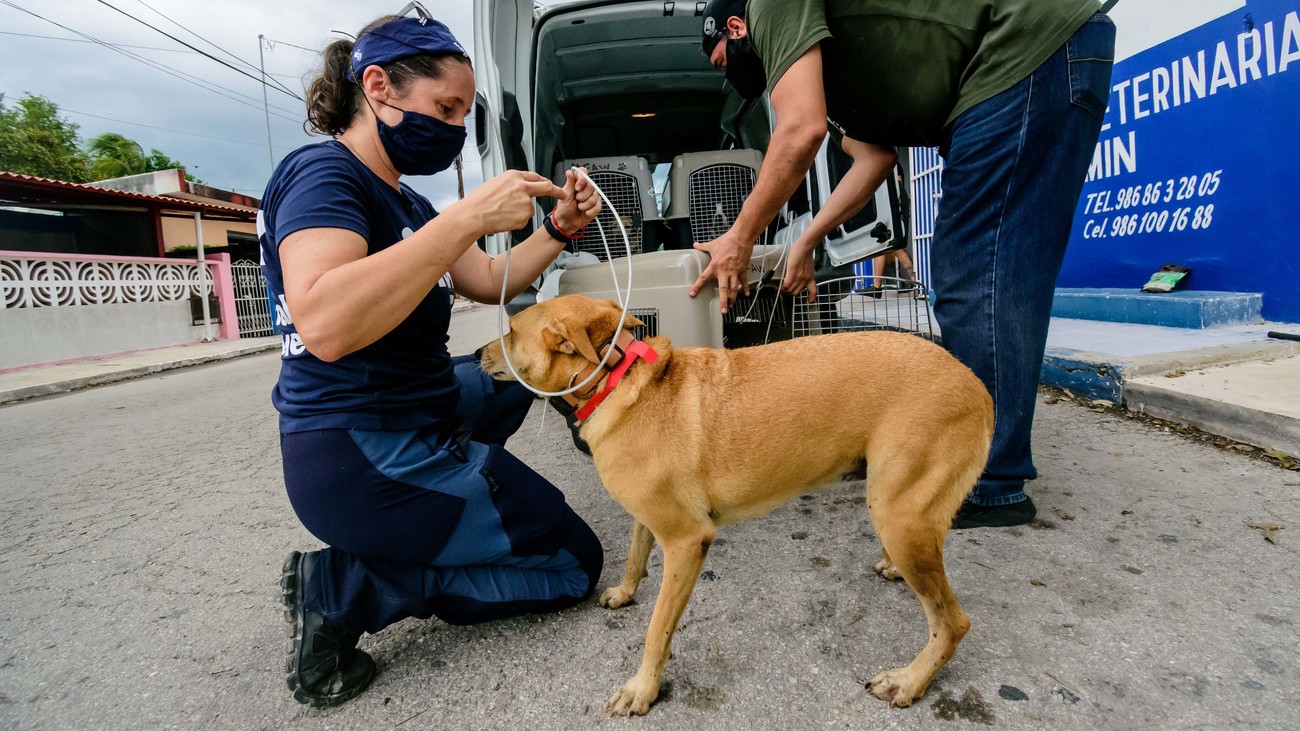disaster response
disaster response
As disasters around the world increase in intensity and frequency, IFAW’s Disaster Response & Risk Reduction team is ready to help by deploying to the hardest-hit communities to rescue animals and support local animal guardians and authorities throughout the crisis. In fiscal year 20, IFAW’s Disaster Response & Risk Reduction team rescued 50,639 animals.
The Disaster Response team crafted a “Go/No-Go” deployment guide to ensure our team and trained responders could evaluate and deploy safely to disaster zones during the COVID-19 crisis.
Our greatest impact often comes after the disaster strikes, when we work with local stakeholders to evaluate a community’s risk and to address threats through strategic planning and building local capacity to prepare for and respond to the next disaster.
During the first few months after Hurricane Dorian hit the Bahamas, IFAW immediately deployed trained responders and provided over 5,000 animals with direct care and over 113,000 kilograms of supplies, including food, veterinary supplies, and humanitarian aid. Since then, we continue to work closely with our partners and the Bahamian government to implement a successful, long-term, comprehensive emergency management plan for the islands.
catastrophic bushfires in Australia
Australia’s annual drought and bushfires combined for a devastating 2019-2020 season. The climate crisis contributed to record-breaking temperatures and a prolonged drought, which ignited bushfires throughout the landscape earlier than normal and they increased in magnitude and intensity throughout the season.
IFAW has been on the ground in Australia for more than 32 years. For decades, we have grown our team and strengthened our relationships with wildlife rehabilitators and government agencies across the country. So, when unprecedented disaster struck, we were well-placed to respond. Early on, we leapt in to provide assistance to rescue and care teams on the ground. With the invaluable support of generous donors from around the world, we were able to deliver help where it was needed most.
Locating koalas in burned-out forests
Bear, a koala detection dog, was an integral part of our search and rescue efforts to locate koala survivors in the bushfires. Trained by IFAW’s partners at the University of the Sunshine Coast’s (USC) Detection Dogs for Conservation team, Bear is one of the few detection dogs in Australia able to locate live koalas through the scent of their fur. Bear’s success attracted global celebrity and media attention as he tracked over 100 koalas in burned-out forests this season.
Thanks to timely reporting from the field and widespread attention from media, IFAW received an influx of corporate, private and foundational grants. With this support and more, Bear and the USC Detection Dogs for Conservation team are now conducting crucial research on the health and resilience of koala populations through the bio-health of their scat after the fires.
Impact of science
In March 2020, IFAW published a first-of-its-kind scientific report identifying a significant loss of 6,382 koalas across New South Wales –15% of the state’s population. Over the past 20 years, 62% of the population is estimated to have perished due to drought, bushfires and man-made causes exacerbated by climate change. For this reason, we embarked on a policy push, calling on our peers, supporters and the New South Wales state and federal government to “uplist” the status of koalas from “vulnerable” to “endangered.”
Planting trees
This fiscal year alone, together with local partners and landowners we have taken part in the planting of 35,000 native eucalyptus trees, with plans to expand our collaborative efforts and connect a network of essential wildlife corridors up and down Australia’s east coast. This investment in restoration and regrowth – much like our commitment to the migration routes of elephants and whales – will support generations of animals to come, and these community projects help to instill a desire for local landowners to be part of building a healthy future.
rescue, relief, and recovery after Hurricane Dorian
In September 2019, the Bahamas was hit by its worst natural disaster on record. Hurricane Dorian, a Category 5 storm, struck the islands and left a trail of devastation in its wake, destroying many of the places people and animals called home.
Shortly after Dorian made landfall – and at the request of the Bahamian Government – IFAW deployed 50 responders to help with rescue and relief efforts on Abaco and Grand Bahama over the course of two months. While on the ground, IFAW established and led a coalition of organizations to rescue animals, provide shelter and veterinary care and reunite pets with their owners.
When IFAW arrived on Grand Bahama, 71 unowned dogs and 86 unowned cats at the Humane Society of Grand Bahama needed immediate transportation from the island. Along with our partners, IFAW supported flights to take the animals to the United States, where they could undergo health assessments before finding forever homes.
In total, IFAW, alongside GreaterGood.org and Wings of Rescue, organized emergency transport for over 700 animals—including dogs, cats, rabbits, birds and turtles. Many of these animals had been rescued from some of the hardest hit areas and required emergency veterinary care and extensive daily care support.
As a result of IFAW’s work across the islands, from our immediate response through to ongoing recovery efforts, more than 5,000 animals received direct care and more than 113,000 kilograms of supplies including food, veterinary supplies, along with humanitarian aid were delivered to Nassau, Abaco, and Grand Bahama.
Supporting successful long-term recovery
IFAW continues to work closely with the coalition to implement a successful, long-term recovery plan for the islands. On all three islands, we awarded emergency grants to local partners as they rebuild stronger than ever and care for the animals in their communities.
The Abaco Animal Shelter was able to cover mobile pet wellness clinics at Marsh Harbour and Sandy Point, where over 100 animals received treatment, vaccinations, and purchased a truck for volunteers to deliver vital pet supplies to families in the aftermath of the hurricane. IFAW grants were also used to repair the original shelter and increase Abaco Animal Shelter’s capacity to care for animals in need and promote responsible pet population management.
Preparedness that reduces future risk
In spring 2020, IFAW created a Bahamas Comprehensive Emergency Management Plan and submitted it for consideration to the Ministry of Agriculture and Marine Resources, Division of Veterinary Services, and all other coalition members. IFAW is working one-on-one with all coalition members to create contingency plans and prepare their communities.
Implementing a full-circle approach to disaster response, from response and recovery to preparedness and risk reduction, helps communities be more resilient, protecting even more animals from harm.
saving animals from flooding to support communities
We know that healthy animals are often the key to community health and resilience. Since 2015, IFAW’s community-led Safelands project in Myanmar has provided farmers with raised platforms for their cattle to find refuge when flooding hits. Farmers rely on cattle for plowing fields, so the animals provide vital support to the farmers’ families and their communities. Cattle caught in floodwaters suffer and become vulnerable to illness and death.
In fiscal year 20, one Safelands platform in Myanmar provided safe refuge for 175 cattle during flooding. Evacuation of these cattle by boat would have cost the community around US$1,300, which is a significant amount that can instead be saved and invested in other aspects of the community.
Today, Myanmar’s government is investing its own resources to replicate the Safelands project across the delta region. In fiscal year 20, an additional eight platforms were built.
The Safelands project is an example of how sustainable projects can thrive when community participation, ownership, and leadership is encouraged. By fiscal year 20, all 11 project sites had established community-led committees to oversee the management of the Safelands, and several of the communities had hosted training sessions for their own villages. In the Myan Aung community, which is one of the government-built Safeland sites, IFAW helped three local women set up a community fund to pay for upgrades and repairs. This community and female-led initiative has secured donations from community members and local business that will help sustain their Safeland in the future.
IFAW’s Safelands project was featured on the United Nations’ Sustainable Development platform, highlighting IFAW’s commitment to implementing sustainable conservation and animal welfare projects.
five rhino calves rescued from flooding
Since 2001, we have partnered with the Wildlife Trust of India (WTI) and the Assam Forest Department to protect animals and the habitats they call home. By implementing an approach that combines animal rescue, landscape conservation, and community engagement we have seen the return of some of the region’s most iconic species and allowed landscapes to thrive.
In July 2019, along with our partner WTI, we rescued five rhino calves from the annual flooding in Kaziranga National Park, Assam. All five of the calves have now been moved into the rhino enclosure at the jointly run Centre for Wildlife Rehabilitation and Conservation facility where they have successfully adjusted to their new environment and are exploring the natural feed available to them. In time, they will be released back into the wild in places like Manas National Park, where our integrated approach to welfare and conservation shows landscape conservation, wildlife crime teams and rescue efforts, all contributing to a holistic solution.
keeping families together by feeding pets
IFAW’s work also included keeping families together during the COVID-19 pandemic. From the West Coast of the United States to Mexico and the U.S. Virgin Islands, IFAW issued grants and worked with local partners to purchase and distribute pet food to families facing economic challenges during the pandemic. In total, 25,000 kilograms of pet food was distributed to families in need. In the U.S. Virgin Islands alone, we helped feed more than 1,200 pets.
Stay in the know. Be ready to act.
